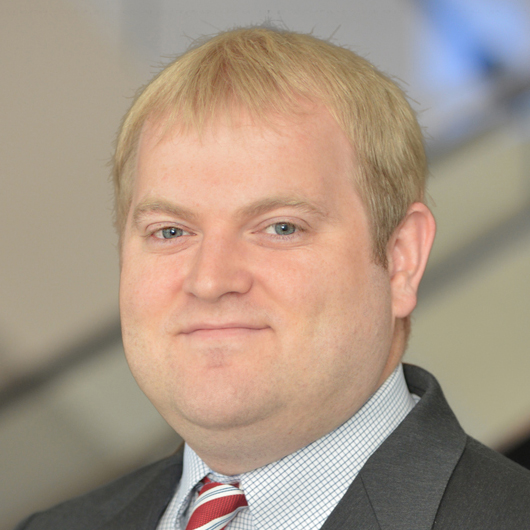On June 1, the US Supreme Court held in United States ex. rel. Schutte v. Supervalu, Inc. that a health-care provider or supplier can’t escape liability under the False Claims Act’s knowledge, or scienter, requirement.
It argued it had an objectively reasonable interpretation of the relevant statute if, subjectively, the provider is aware of information that the claim is false, is aware of a substantial risk that the claim is false but intentionally avoids taking steps to confirm the truth of the claim, or acts in reckless disregard of whether the claim is false.
The court reversed the Seventh Circuit Court of Appeals’ award of summary judgment to Supervalu and Safeway in False Claims Act cases, where the two entities’ pharmacies had misreported usual and customary pricing to Medicaid state agencies. The court thus rejected the Seventh Circuit’s approach.
This held that if the conduct of a person submitting a claim to the government is consistent with any objective reasonable interpretation of the relevant law that hadn’t been ruled out by definitive legal authority or guidance, then the claim couldn’t be false.
Instead, the unanimous court focused on the subjective intent of a provider or other contractor submitting a claim to the government.
In the underlying cases, relators, or whistleblowers under the False Claims Act, alleged Supervalu and Safeway hadn’t accurately reported their usual and customary pricing to Medicaid, which is essential because Medicaid agencies generally require that the state receive pricing that at least meets the usual and customary pricing of a health-care supplier or provider.
Both entities had price match programs, and one had a membership discount program that the majority of cash-paying patients used. The court noted there was some evidence these entities were aware that their lower discounted prices were, in fact, their usual and customary prices and tried to hide the discounted prices from regulators and contractors.
Thus, even though these entities could on an ex-post facto basis fashion a legal argument that their submission of their claimed usual and customary pricing was objectively reasonable in light of underlying regulatory requirements, the court held that because there was some evidence of subjective intent to avoid disclosing the discount programs, summary judgment should not have been granted to those entities.
The Supreme Court vindicated the government’s position that the False Claims Act’s scienter requirement is subjective. The court noted that under the text of the False Claims Act, scienter can be shown by actual knowledge, deliberate ignorance, or recklessness.
Thus, the court held that if a health-care provider or supplier like the pharmacy chains at issue in this case is aware it’s submitting a false claim, has consciously avoided taking steps to determine whether the claim is false, or is conscious of a substantial and unjustifiable risk that the claim is false but submits it anyway,then the knowledge requirement is met—regardless if the claim would be consistent with any objectively reasonable interpretation of the statute or regulation governing the claim’s submission.
Hence, to assess whether the knowledge requirement is met with respect to a claim that a health-care provider has submitted, the decisive issue is a provider’s actual knowledge of the underlying facts and subjective beliefs about the validity of the claim, not what another objectively reasonable person may have known or believed about the submission of a similar claim.
In light of the court’s opinion, a health-care provider or supplier must be aware that even if a regulation, rule, or statute is ambiguous, the provider can’t rely upon that ambiguity when submitting a questionable claim if the contractor could learn or become aware of a substantial likelihood of the correct meaning of the regulation, rule, or statute.
In no event can that provider rely upon an ex-post facto rationalization to preserve a claim if the provider was aware that the claim could be false at the time of its submission.
As the court held, in determining whether the knowledge requirement is met “we do not look to legal interpretations that respondents did not believe or have reason to believe at the time they submitted their claims.”
The court also rejected the argument that the claims couldn’t be false because an incorrect statement of the law doesn’t amount to a misrepresentation of fact. Instead, the court reasoned that in this instance an incorrect statement of the law—that the pharmacy’s pricing was usual and customary—involves both a legal interpretation as well as a mixture of fact.
In general, the decision in a straightforward fashion applied the statutory text—which the court emphasized is based upon the common law of fraud—to give the relators a big victory.
For health-care providers and suppliers, the broader lesson is that if uncertainty exists whether the provider is submitting an accurate claim to the government, or whether an arrangement between providers implicates the Stark law or the Anti-Kickback Statute, then the provider should seek advice of counsel to attempt to resolve that uncertainty.
An attempt to defend a borderline claim or questionable arrangement after the conduct has taken place is much more challenging in light of the court’s opinion and considering its reasoning.
The case is United States ex rel. Schutte v. SuperValu Inc., No. 21-1326, U.S. June 01, 2023.
Reproduced with permission. Published June 5, 2023. Copyright 2023 Bloomberg Industry Group 800-372-1033.




